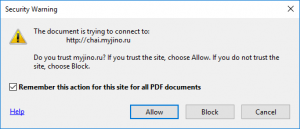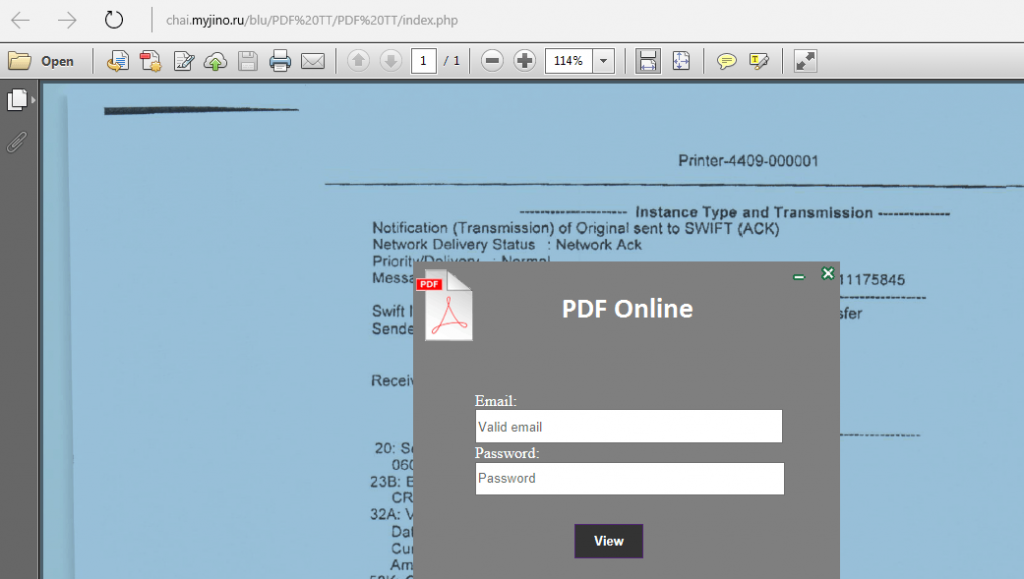The SANS Internet Storm Center published a warning on Wednesday about an active phishing campaign that utilizes PDF attachments in a novel ploy to harvest email credentials from victims.
According to the SANS bulletin, the email has the subject line “Assessment document” and the body contains a single PDF attachment that claims to be locked. A message reads: “PDF Secure File UNLOCK to Access File Content.”
Clicking on a link to unlock the document opens the PDF document using the computer’s default viewer. A dialogue box then appears above the PDF prompting the user to input their email address and password.
“This is an untargeted phishing campaign. They are not going after the most sophisticated users. They are going after Joe Cubicle that may not think twice about entering credentials to unlock a PDF,” said John Bambenek, handler at SANS Internet Storm Center.
Bambenek suspects that attackers are harvesting credentials in hopes of gaining a small foothold into a company via an email account or to perpetuate further phishing scams.
The email says it’s from VetMeds and the PDF is identified as a VetMeds assessment. Once opened, the contents of the one-page PDF indicates that the document is a SWIFT (Society for Worldwide Interbank Financial Telecommunication) banking transaction.
“It doesn’t matter what email address or password you input into the fake unlocking mechanism. The document is opened and anything you input is transmitted to the spammer,” Bambenek said.
 Computers configured to open PDF documents via the Adobe PDF reader are cautioned via a security warning dialogue box before opening. The message reads: “The document is trying to connect to… If you trust the site, choose Allow. If you do not trust the site, choose Block.”
Computers configured to open PDF documents via the Adobe PDF reader are cautioned via a security warning dialogue box before opening. The message reads: “The document is trying to connect to… If you trust the site, choose Allow. If you do not trust the site, choose Block.”
Bambenek points out that Microsoft’s Windows 10 uses the Microsoft Edge browser as default PDF reader. And when Edge opens the VetMeds PDF, unlike with Adobe, no warning message is presented to the user.
SANS says it is unclear what the size and scope of the phishing campaign is. According to Bambenek, over the past few days, SANS has been forwarded a number of these phishing emails from across the country.
“Be wary of emails from domains that don’t match the contents, note that encrypted PDF documents are not locked this way (and will never ask you for your actual email password anyway), and look for other inconsistencies that give these away as scams,” he advises.











